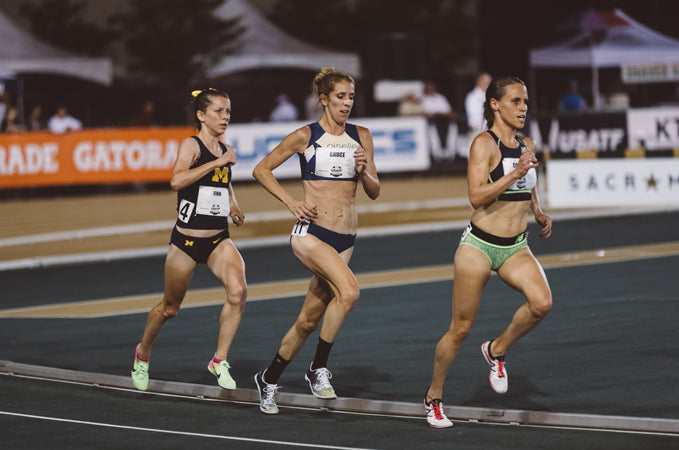It's getting hot out there, so take off all your clothes... no actually keep them on! Racing in the heat can sometimes mimic the effect of racing at altitude. Your perceived effort is higher, your body is working harder to cool itself and thus taking away from helping you to just work to race your best.

- In the 2 weeks before our peak race we like to begin "heat training." This involves wearing extra layers of clothes to mimic training under hotter conditions. Before I raced the World Championships in Uganda in March, my teammate Scott and I wore long sleeves and tights on days that were already warm in Flagstaff.
- During those 2 weeks you need to up your hydration game and make sure you're taking in extra fluids/electrolytes (gatorade, juices, waters) for the extra sweating you're doing.
- Find ways to keep yourself cool before the race, whether that be in the shade or indoors. Keeping yourself as cool as you can will help a little with dealing with the heat.
- Control the controllable: yourself. The weather is out of your control so keeping yourself calm and prepared is the best way to cope. Adjust your paces, your goals, and know there will be perfect condition races in your future.
 Photo by: Karen Mitchell
Photo by: Karen Mitchell
RACING IN THE HEAT
World Cross in Uganda ended up being one of the hottest and most humid races I've run in a long time. The senior women's race was held in the late afternoon when it was low 80s, with 80% humidity. I shortened my warm up from a typical 3 miles to about 14 minutes. The purpose of a warm up is to neurologically wake up your body and let it know you need it to perform. This happens within about 3 minutes of running, so the rest is just getting everything primed and loose. After my warm up, I returned to our call tent and stayed in the shade until we were called. We drenched towels in ice water and wrapped them around our necks. I put ice down my jersey and pants (yes I did). We also had these fancy wrist bands that were cooling devices and meant to help cool the inside of your wrist which is a part of your body that helps regulate temperature.

USA OUTDOOR TRACK & FIELD CHAMPIONSHIPS
You train, train, train for a peak race getting super fit, preparing for all the scenarios you can. Then the uncontrollable happens. The weather is going to be oppressively hot. The week before USAs for track this past June, we were alerted Sacramento was receiving heat warnings. The week of the championships was to see record highs of 105-108 degrees. Luckily, Flagstaff was warm so we were training in heat, just not that type of heat. I did pretty similar things to prepare the way we did for World Cross. Wore extra layers, hydrated well, and tried to keep calm.

When I arrived in Sacramento I did my pre race shakeout of 4 miles at the hottest time of the day, it was 106 degrees. It was a terrible run and I wouldn't recommend doing this often but I thought... "well at least things won't feel worse at race time." The race was run at 9pm with the sun well down and leaving just a stagnant cloud of heat around 88 degrees. I shortened my warm up to 9 minutes and stayed in the cool gym. I had on the wrist bands and an ice vests. I was as prepared as I could be for the heat. The hot pace was another story.
Keep cool and carry on!












